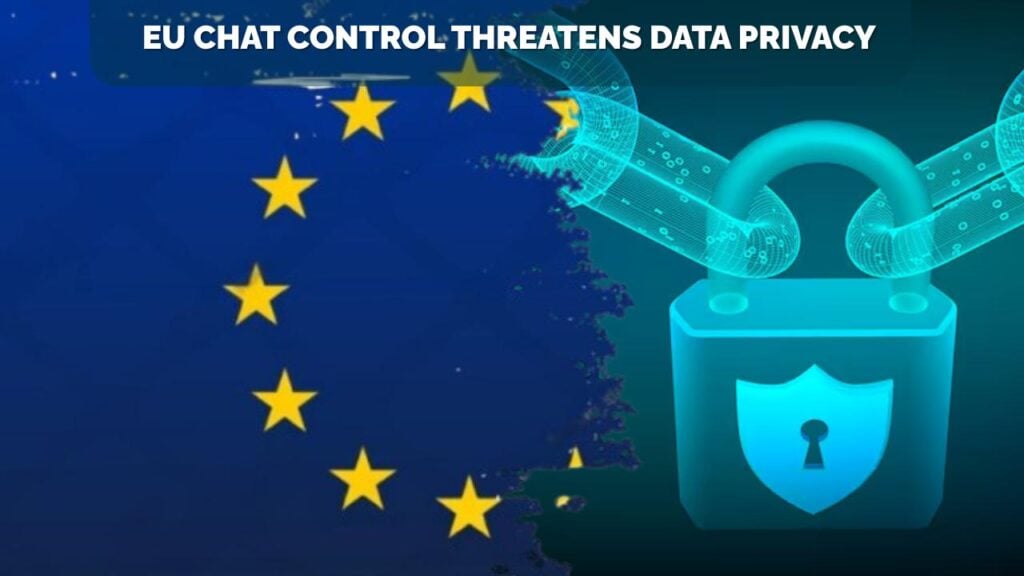- · XNUMX€EU Chat Control law sparks criticism for threatening encryption and privacy.
- · XNUMX€Experts say users may shift toward decentralized Web3 platforms.
- · XNUMX€Germany’s pivotal vote will likely decide the proposal’s fate.
As European lawmakers come closer to a decision on the controversial Chat Control proposal, technologists and legal scholars are sounding the alarm that the regulation could fundamentally reshape the digital landscape in Europe. Privacy experts warn that EU Chat Control threatens privacy and calls for a shift to Web3 platforms.
Regulation’s Clash With Fundamental Rights
The proposed regulation, titled Regulation to Prevent and Combat Child Sexual Abuse (CSAR), would require platforms to detect, report, and block child sexual abuse material (CSAM). However, it obliges services to scan private messages before they are encrypted, raising fears that the measure effectively introduces a backdoor into end-to-end encryption systems.
Critics argue that this proposal collides with the EU’s own legal foundations, pointing to Articles 7 and 8 of the Charter of Fundamental Rights of the European Union, which guarantee the confidentiality of communications and protection of personal data. The criticism was also supported by Hans Rempel, CEO of Diode, who said that giving corrupt entities unlimited visibility into the private lives of individuals is incompatible with the honesty of digital privacy.
Elisenda Fabrega, general counsel at digital asset firm Brickken, called this proposal “difficult to justify” under EU law and further noted that the proposed “client-side scanning” would monitor content on user devices even when there is no indication of unlawful activity.
Web3 In The Spotlight
As trust in messaging platforms falters, many predict a shift toward decentralized alternatives, bringing Web3 platforms into the spotlight.
The Web3 ecosystem is built on blockchain infrastructure, embedding encryption by design and ensuring self-custody of data, where no one can take control of another’s information. Hans Rempel stated that, “the Web3 privacy is a battle cry: ‘not your keys, not your data.’”
Privacy expert Fabrega warns that privacy-conscious users may increasingly explore these decentralized options if Chat Control passes. She cautioned that such a shift could fragment Europe’s digital market and weaken the EU’s global influence on privacy standards.
Related leggi: L'Europa rafforza la presa sulle criptovalute mentre le regole diventano più tese e le sanzioni si allargano
German Holds The Key
The Chat Control proposal currently has the support of 15 EU members, but under qualified majority voting rules it falls short of the 65% population threshold. This makes della Germania position pivotal: if it agrees with the proposal, the law may succeed, but if it rejects it, the proposal may fail.
For now, the outcome remains uncertain, but it is widely acknowledged that this debate is far from over. Hans Rempel said, “Even if this fails, attempts to subvert fundamental rights in the name of safety will continue.”
Conclusione
EU Chat Control is threatening consumers’ privacy, and experts warn that if the proposal is passed, it may put individuals’ private data into the hands of the least trusted entities. As a result, users have begun shifting toward Web3 platforms, decentralized alternatives that give individuals ownership of their data. However, experts also warn that this shift could weaken the EU’s position in shaping global digital privacy standards.
- EU’s Chat Control Law Sparks Privacy Concerns and Potential Shift to Web3 Platforms — 21 settembre 2025
- EU’s Chat Control law would push users toward ‘Web3 alternatives’ — 21 settembre 2025






